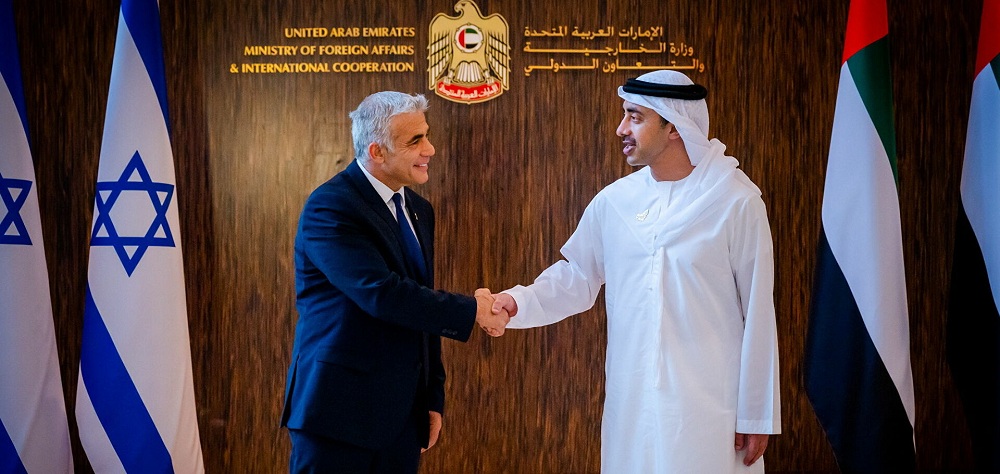AhlulBayt News Agency (ABNA): The Emirati-Israeli normalization in August 2020 substantially prepared the ground for increase of cooperation between the two sides at security and political levels in West Asia and North Africa. One of the areas of cooperation of Abu and Tel Aviv is Yemen. Recently, an officer in Yemen commanding forces loyal to the UAE met an Israeli intelligence official in Sharm El-Sheikh, Egypt.
Media outlets reported that Tareq Afash, the commander of the UAE-aligned forces in Yemen's west coast, was the man who met the Israeli intelligence figure.
It is noteworthy that Afash's trip to Sharm El-Sheikh took place while about two weeks ago, a number of Mossad officers entered the Yemeni coastal city of Al-Makha and held meetings with him. Taken together, these meetings indicate that the Israeli regime and the UAE are seeking to increase the level of cooperation and pursue their common goals in the new situation.
UAE-Israeli cooperation in Yemen
Security and political cooperation between Abu Dhabi and Tel Aviv have shown obvious instances. Strategically important for the Israeli regime, Yemen has always been a point of focus for the Israeli security and intelligence apparatuses, which struggle to get a toehold there using the Emirati potentials. One of first and most important areas of work was construction of the largest intelligence collection base in Eritrea, on the other side of the Bab-el-Mandeb, meant to provide a watchdog to support the Arab coalition led by Saudi Arabia.
Also in 2019, there were reports of the establishment of an Emirati-Israeli military base in Perim (Mayyun) Island. The island, which overlooks the Bab al-Mandeb Strait, provides an important common ground for cooperation between the Israeli regime and the UAE.
Also, following the normalization agreement, the Emiratis and Israelis put on their agenda establishing a spying base in Yemen's Socotra Island. With the Israeli assistance, the UAE transported its heavy military equipment and Sudanese militants to Yemen battlegrounds. Moreover, in an unprecedented move, the two conducted joint naval drills in the Red Sea together with the US and Bahrain.
The covert motivation for Emirati-Israeli security and strategic partnership in Yemen
There is an array of covert drivers for the Israeli cooperation with the Emirates in Yemen. The primary goal is support to the southern separatists who on the strength of Tel Aviv and Abu Dhabi are pushing to remove from power the fugitive President of Yemen Abdrabbuh Mansour Hadi in the stopgap capital of Aden and form their own government where the two actors have a sway.
This can be considered the main goal of the southerners in establishing contacts with the Israeli security institutions in the new conditions. Actually, both the Israelis and the Emiratis have a consensus on formation of a southern government via ending life of Hadi government.
Another motivation for Israeli Yemen role, particularly in the south, is the latter's strategic position. In fact, southern Yemen is close to Bab-el-Mandeb between the Red Sea and the Indian Ocean, and is the closest waterway between east and west. By dominating this strait and the strategic Perim Island, the Israelis would be able to control the Red Sea. The Perim Island divides Bab-el-Mandeb into the eastern waterway, called Bab Iskandar, and western waterway, called Mayyun. Bab-el-Mandeb is militarily important and eye-catching. A major part of the military logistics to the Red Sea coastal states are transported through this strait. The experience of the Israeli-Arab war bears witness to this. In the 1973 Egypt-Syria war against the Israeli regime, Yemen, in coordination with the Egyptians, closed the Bab-el-Mandeb to the entry of Israeli ships and weapons, thereby effectively preventing Tel Aviv from using most of its navy power.
Given these points about Yemen's south, the Israeli presence and influence in this part of the war-weary country is extraordinarily important to the Israeli leaders. Thus, in association with the UAE and southern rebels, Tel Aviv has started serious efforts to establish bases in southern islands, especially Socotra.
/129

